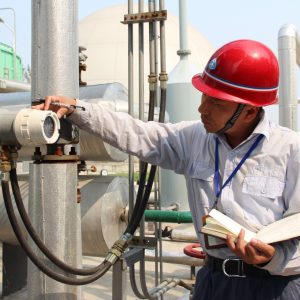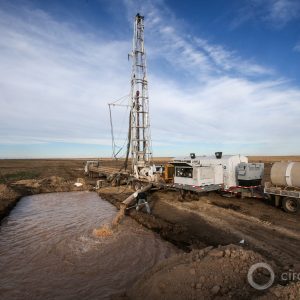The Stream, June 2: Tanzania Takes Back Land From Foreign Investors
The Global Rundown
Tanzania is beginning to revoke land titles held by foreign investors who have not developed agricultural projects, returning farmland to local farmers and herders to reduce conflicts over grazing and water access. Millions of women and children who collect water each day in Africa are at greater risk of health problems and sexual assault, according to researchers. Damage to gas pipelines has exacerbated water shortages in Lagos. More renewable energy projects were added globally in 2015 than in any other year, a report found. The water utility in Des Moines, Iowa is spending more than a million dollars on a lawsuit over farm pollution. Farmers in the southwestern United States are turning to aquaculture to improve water efficiency.
“My hope is that people recognize that integrating aquaculture and agriculture would really encourage everybody to use water twice and be super efficient with it.” –Kevin Fitzsimmons, a professor at the University of Arizona, on encouraging farmers in the American Southwest to adopt aquaculture to increase water efficiency. In Arizona, the number of fish farms almost doubled between 2005 and 2013. (Guardian)
By The Numbers
17 million women and children Estimated number in sub-Saharan Africa who collect water every day. The activity puts them at greater risk of health problems, sexual abuse, and educational and economic setbacks, according to researchers. Reuters
1,800 hectares Area of farmland the Tanzania government redistributed to local communities last month to reduce conflicts between farmers and herders over grazing lands and water access. The government is reviewing private titles for more than half a million hectares of land, which it can take back if the owners, many of them foreign investors, fail to develop it. Reuters
$1.3 million Amount Des Moines Water Works, the water utility in Iowa’s capital, has set aside to fund its Clean Water Act lawsuit against three rural counties over nutrient pollution. It says the cost of the suit pales in comparison to the millions it spends treating polluted water. WHOTV
Science, Studies, And Reports
Renewable energy projects capable of producing 147 gigawatts of electricity were completed in 2015, while clean energy investments reached $286 billion, according to a report by REN21, a global renewable energy policy network. It was the biggest annual increase in renewable energy ever, including solar, wind, and hydropower, and occurred at the same time fossil fuel prices plummeted. Guardian
On The Radar
The vandalism of gas pipelines in the Niger Delta has created fuel shortages at power plants, and in turn potable water shortages across Lagos, according to government officials. The state is also struggling to close chronic water supply gaps to support a growing population. Vanguard
A news correspondent for Circle of Blue based out of Hawaii. She writes The Stream, Circle of Blue’s daily digest of international water news trends. Her interests include food security, ecology and the Great Lakes.
Contact Codi Kozacek




